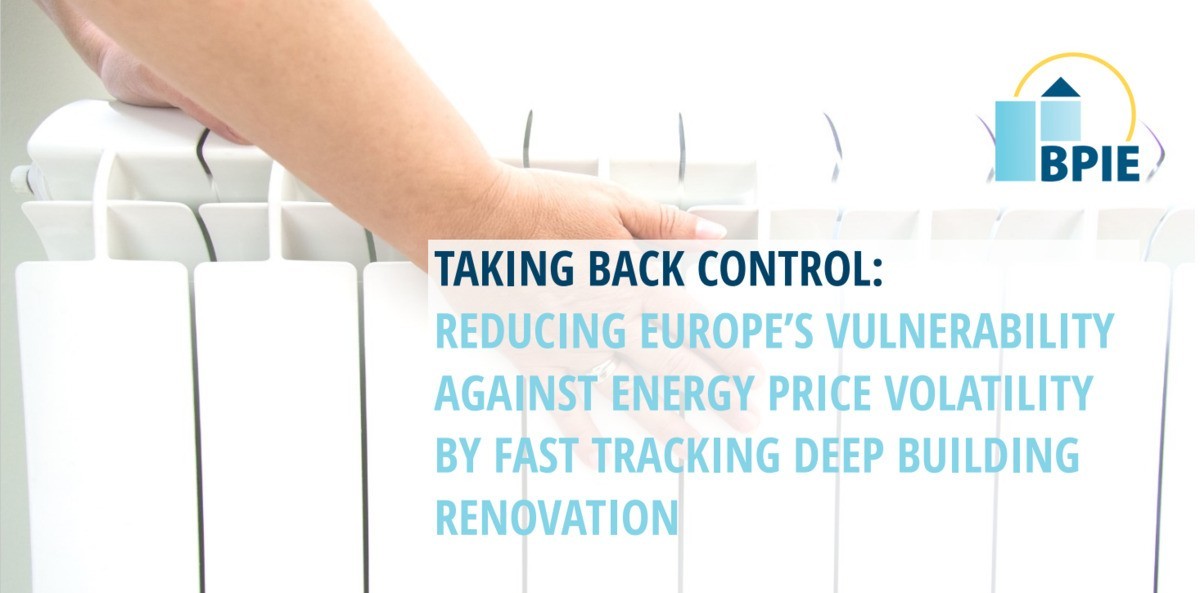Taking back control: Reducing Europe’s vulnerability against energy price volatility by fast tracking deep building renovation

The recent energy price hikes are a stark warning about Europe’s vulnerability for having access to affordable and clean energy supply. The societal cost burden is exacerbated by the fact that many European households have switched to gas for heating in the past decades, while investments in energy efficiency have not seen a dynamic increase as they should have.
This policy briefing argues that buildings are a necessary strategic pillar which must considered as part of a long-term solution to the problem of rising gas prices, especially as the stark price hikes are now (and may continue) to affect Europe’s most vulnerable, energy poor populations.
The briefing argues that short-term solutions such as increased financial support for vulnerable groups are an appropriate and necessary political response in a time of crisis, but should not dilute attention and commitment to pushing long-term sustainable solutions. Improving the energy performance of European buildings is the most reliable and safest strategy to reduce EU’s exposure to future energy cost spikes, and policy making should move from serious words to serious action and serious political support.
The current energy price crisis should fast track efforts to deploy deep energy renovation. It requires committed national strategies to reduce energy consumption of buildings. Significant funds are available in Europe, both from the increasing revenues of the European Emission Trading System as well as from the Recovery and Resilience Facility.
The fast track could be launched by the following actions:
- Use the EU ETS revenues to kick-start renovation efforts by allocating them to immediate comprehensive energy audits of buildings. These audits will prepare deep renovation plans with a focus on the worst performing buildings, also known as Building Renovation Passports This will result in a transparent definition of investment opportunities for the coming years.
- Use the Recovery and Resilience Facility funds (RRF) to provide a mix of financial support consisting of grants, preferential zero-interest loans and bank guarantees to trigger investments by different owner groups. Most national recovery plans make significant funding available for renovation.
- Invest a share of the RRF in an initiative to boost skills and innovation in the construction sector so that renovation service supply can meet the growing demand.
Ad hoc short-term measures to protect vulnerable citizens against severe consequences of energy price spikes need to go hand in hand with measures to deliver sustainable, long-term solutions with deep renovation of the building stock. The revision of the Energy Performance of Buildings Directive (EPBD), expected at the end of this year, is the perfect opportunity to bring this much needed change to life and deliver those deep energy renovation policy solutions with long term benefits. Besides this “fast track for renovation” measures, a comprehensive and ambitious revision of the EPBD is therefore needed.



